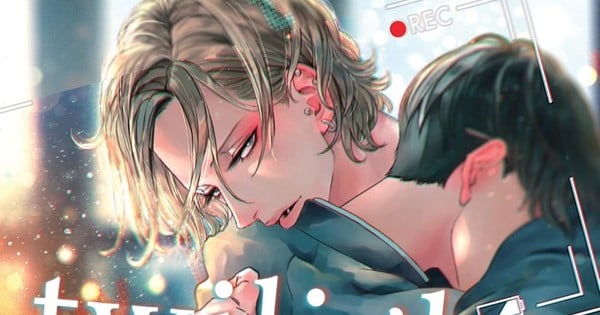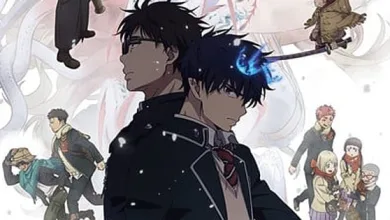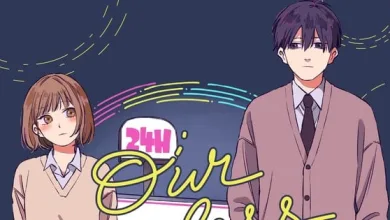Twilight Out of Focus Volumes 1-4 Manga Review – Review

Twilight Out of Focus, a mature-rated BL series published by Kodansha, may have first come to the attention of English-language readers when Amazon decided not to carry the Kindle edition. Since it was one of Kodansha‘s Digital First series, with the e-book releasing March 1, 2022, and the print edition not until May 9, 2023, this was very noticeable, even though volume one was available on plenty of other digital platforms. At first blush, it seems like it might have been the explicit sexual content that kept the book from Kindle. Still, when you read it, it turns out that the more likely culprit was a specific element of Hisashi Otomo’s backstory: his first “boyfriend” was one of his middle school teachers, and they had an off-the-page sexual relationship. Is it a little silly to exclude it based on something stated but never seen? Especially since plenty of text-only novels contain similar storylines. But as of this writing, you still can’t access a Kindle edition of volume one, so it appears to be something they’re sticking to.
This is only an issue if that’s your preferred method of reading digital manga, and if it’s been stopping you from picking up Jyanome‘s series, do hunt down volume one elsewhere because it’s a good read for BL fans. The main story (contained in volumes one and three and the upcoming books five and six) follows high school second years Hisashi and Mao. They’re roommates in their boys’ school’s dorm, and fairly early on, Mao learned that Hisashi was gay and had a boyfriend. It didn’t really bother him, so long as Hisashi promised not to hit on him, and by the time the story opens, they’re good friends. Mao, a cameraman with the school’s ambitious film club, starts to think about his roommate differently when the second-year director tells them that their entry for the annual film competition will be a new genre: BL. Ichikawa, the super-serious director, discovered BL manga through his younger sister and has become fully obsessed, plus he thinks that the unusual choice (for their school, at least) will give them an edge. There’s just one catch: he wants Hisashi to play one of the leads despite him not being in either the film or drama clubs. Mao, knowing that Hisashi is actually queer, isn’t sure it’s okay to ask, but Hisashi agrees…and as Mao’s watching him perform, he suddenly realizes that he’s not keen on watching Hisashi hit on and kiss someone other than him. But he’s also afraid to lose his best friend, and he thinks Hisashi is still dating his previous boyfriend, both of which hold him back from fully embracing his feelings.
One of the things that makes this series so good is that none of the boys, even those who previously identified as straight, have any issues with queer relationships. Ichikawa’s enthusiasm for BL certainly helps, particularly in his own enemies-to-lovers romance with third-year director Jin in volume two, Afterimages in Slow Motion, and there’s also no erasure of the fact that women exist, a trick both BL and yuri like to use to make same-sex relationships more “plausible” in the story’s world. Volume four, The Evening Monologues, features a character whose best friends are girls from his middle school days, while Inaba, his love interest, is implied to have dated both boys and girls before. The focus, therefore, isn’t on gender so much as on personalities and the various outside forces that act upon the budding relationships.
Many, if not most, of those come from the characters themselves. Romance is a genre that doesn’t necessarily rely on outside plot points, zeroing in instead on the characters and their motivations, traumas, and insecurities. Twilight Out of Focus primarily uses the activities of the film club to fill in the pieces between character interactions; it’s a film that brings all three couples together more solidly, and indeed, Shion and Inaba wouldn’t even have met if not for both being in the club. Ichikawa’s dedication to filming a BL story impels characters to realize their feelings, while the romance trope of forced proximity takes care of the rest, at least in the case of the first two couples. (The Evening Monologues is the most unique of the bunch in that sense.) The film club is in some ways symbolic of life after high school as well – whether characters want to pursue a film career or not creates tension between them and also is used as shorthand for whether they’re thinking about their futures, with Ichikawa and Mao both having very clear ideas. Hisashi is less focused, while Jin is torn between possibilities, and this difference helps to remind us that the characters are very young, even as they act like they have it all figured out. They read like believable high schoolers in that way – disproportionately confident and squirming with anxiety simultaneously, desperately trying to hold on to what they have while still making their way forward.
That last is a major component of Mao and Hisashi’s story, which looks to form the backbone of the next volumes. Both want to live in the moment, but Mao especially has trouble with that. Hisashi, on the other hand, is carrying a lot of trauma with him from childhood. I’ve already mentioned his relationship with a teacher, which he does come to recognize as an abusive and unhealthy one, but he fell into it in the first place because his stepsister was also a predator – and he was blamed for her actions. It’s important to note that Jyanome is very clear that both of these relationships, which are often romanticized in fiction, are abusive and unhealthy and that they had a deleterious effect on Hisashi’s mental health. Mao can’t “heal” him because that’s not how these things work. But he can support him while he quietly works them through, and that’s a major strength of the story.
Jyanome‘s art has better lines in black and white than in color, but it’s attractive overall. They have a deft hand, seen especially well in how different Ichikawa looks with his hair down versus pulled back in a ponytail: he’s still clearly the same person, but his entire impression changes and the fact that he always pulls his hair back at school implies that he’s fully aware of it and uses the ponytail to be taken more seriously. Bodies are uniformly thin, and uniform pants look more like leggings than slacks, which can be a little distracting, but overall, this looks good, with sex scenes erring on the side of more explicit without showing genitals.
Twilight Out of Focus is strongest when it’s telling its main story, but it is a solid work overall. Jyanome treats difficult subjects with respect and doesn’t lean into melodrama unless Shion is the main character, and he’s all about the melodrama in his head. Sex feels decently important to the plot rather than being there just because, and the art is easy to read. Kodansha may not (as of this writing) publish as much BL as other publishers, but this series shows that when they do, care has gone into choosing the title.
Source link
#Twilight #Focus #Volumes #Manga #Review #Review



